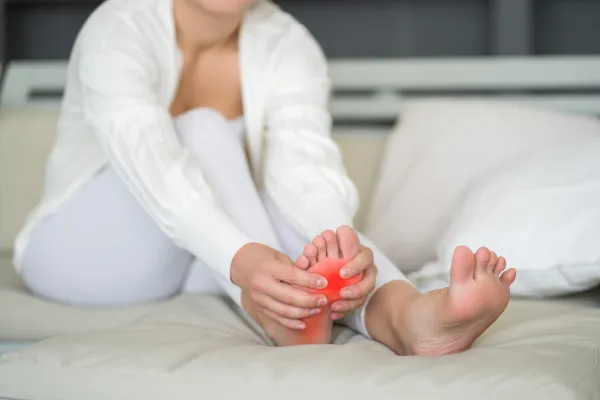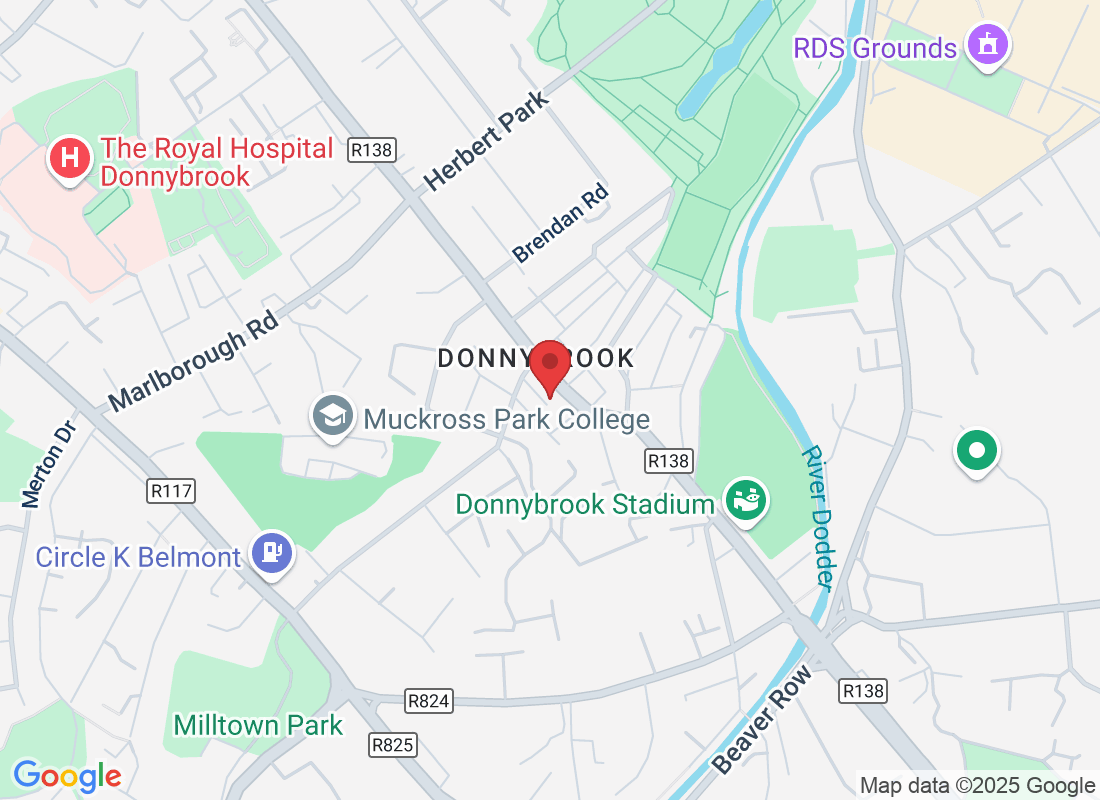Tips & Advice From Mary Moore Podiatry

What Is Plantar Fasciitis and How Do You Know If You Have It?
Ever stepped out of bed and felt a sharp, stabbing pain in your heel with those first few steps? You’re not alone. This common symptom often points to a condition called plantar fasciitis — one of the most frequent causes of heel pain we see at our clinic.
In this post, we’ll explain what plantar fasciitis actually is, why it happens, and how to tell if it might be behind your foot pain. Whether you’re an active walker or on your feet all day for work, understanding this condition is the first step toward lasting relief.
What Exactly Is Plantar Fasciitis?
Plantar fasciitis (pronounced plan-tar fash-ee-eye-tis) is inflammation of the plantar fascia — the thick band of tissue that runs along the bottom of your foot, connecting your heel bone to your toes. Think of it like a built-in shock absorber. But when it's overused or strained, small tears can develop, leading to inflammation and pain.
This pain usually centres around the heel, but it can also radiate across the arch of the foot.
What Causes Plantar Fasciitis?
There’s no single cause, but several factors can increase your risk, including:
Spending long hours on your feet (especially on hard surfaces)
Wearing unsupportive shoes, such as flat sandals or old runners
Sudden increases in activity, like a new walking routine or return to the gym
Tight calf muscles or Achilles tendons, which pull on the heel
Foot mechanics, such as flat feet or high arches
It can affect anyone, but it’s especially common in people aged 40–60, and those with jobs that involve standing or walking for extended periods.
Common Symptoms: How Do You Know If It’s Plantar Fasciitis?
While not everyone experiences plantar fasciitis the same way, some classic signs include:
Sharp heel pain in the morning
Pain is usually worst with the first steps out of bed, then improves as you move around.
Pain after rest or long sitting
That same sharp discomfort can return after you've been off your feet for a while.
Pain that worsens with activity
Walking, running, or standing for long periods can bring the pain back or make it worse.
Tenderness in the heel or arch
Pressing on the bottom of the heel often brings on soreness.
If these symptoms sound familiar and aren’t going away, it’s a good idea to get checked by a Dublin podiatrist who can assess your foot mechanics and recommend appropriate treatment.
What Happens If You Ignore It?
Mild plantar fasciitis can sometimes improve on its own, but without proper care, it can become a long-term issue. Ongoing inflammation may lead to:
Chronic heel pain
Changes in the way you walk, causing knee, hip, or back problems
Heel spurs, or bony growths on the heel bone (although these aren’t always painful)
That’s why early treatment is key — the sooner it’s managed, the quicker you’ll heal.
What Can You Do About It?
The good news? Most cases improve with non-surgical treatment. A podiatrist may recommend:
Custom orthotics to support your arch and relieve pressure on the plantar fascia
Targeted stretching for the calves and feet
Footwear advice to avoid shoes that make symptoms worse
Hands-on treatments like massage or dry needling
Activity modifications to allow healing without giving up movement altogether
At Mary Moore Podiatry, we tailor every treatment plan to suit your lifestyle and goals. Whether you’re a busy parent, a shift worker, or someone who simply wants to walk without pain — we’re here to help.
When to See a Podiatrist
If heel pain is interfering with your daily life, don’t put it off. The sooner you address plantar fasciitis, the easier it is to treat. A qualified Dublin podiatrist can give you clarity, relief, and a plan to move forward comfortably.
Conclusion:
Plantar fasciitis can be frustrating, but it’s also very treatable — especially with the right support. If you’ve been waking up with heel pain or wincing after a long day on your feet, it’s worth finding out if plantar fasciitis is the cause. You don’t have to push through it — help is available, and recovery is within reach.
Ask Mary Moore Podiatry And Their Team
Fill in the form to request a call from our team. One of our team members will call you for FREE and answer any questions or concerns you may have about your condition
Our Clinic Locations
Glasnevin Clinic

If you have any questions before scheduling an appointment or for general inquiries, please use the contact us button below. Our team will promptly reach out to assist you.
Opening Hours
Monday: 8:30am - 7pm
Tuesday: 8:30am - 5pm
Wednesday: 8:30am - 6pm
Thursday: 8:30am - 7pm
Friday: 8:30am - 5pm
Saturday: Closed
Sunday: Closed
Donnybrook Foot Mechanics

If you have any questions before scheduling an appointment or for general inquiries, please use the contact us button below. Our team will promptly reach out to assist you.
Opening Hours
Monday: Closed
Tuesday: 9:30am - 5pm
Wednesday: 9:30am - 5pm
Thursday: Closed
Friday: Closed
Saturday: Closed
Sunday: Closed


